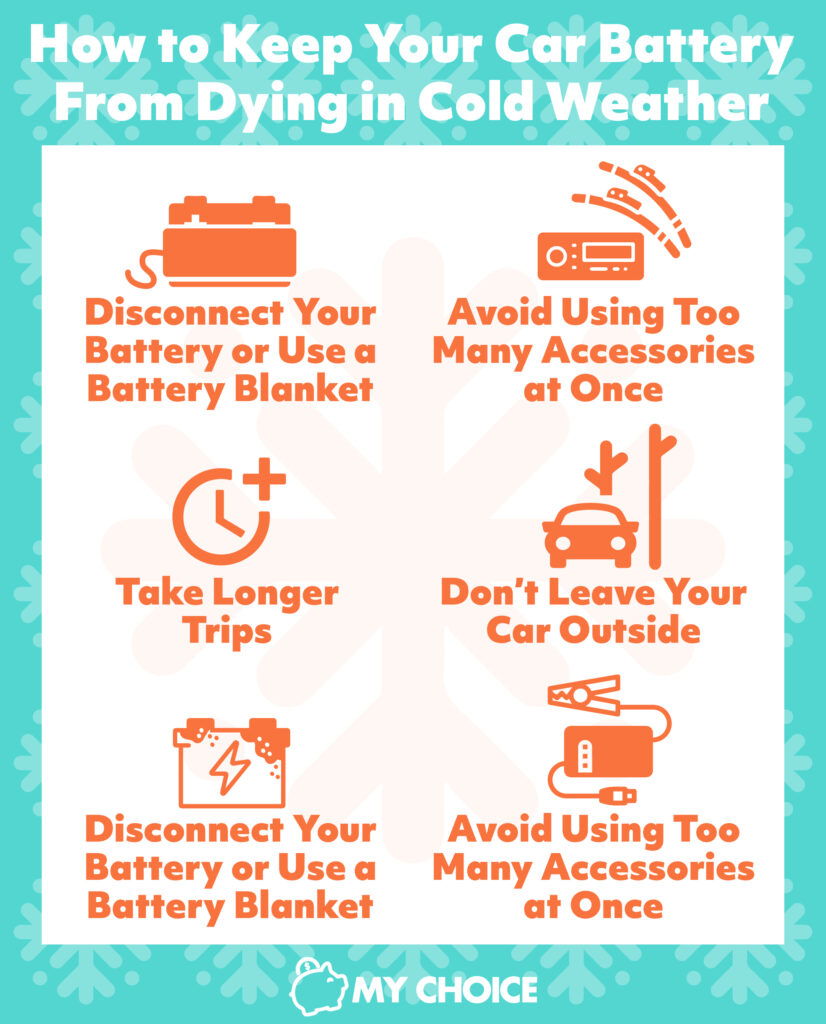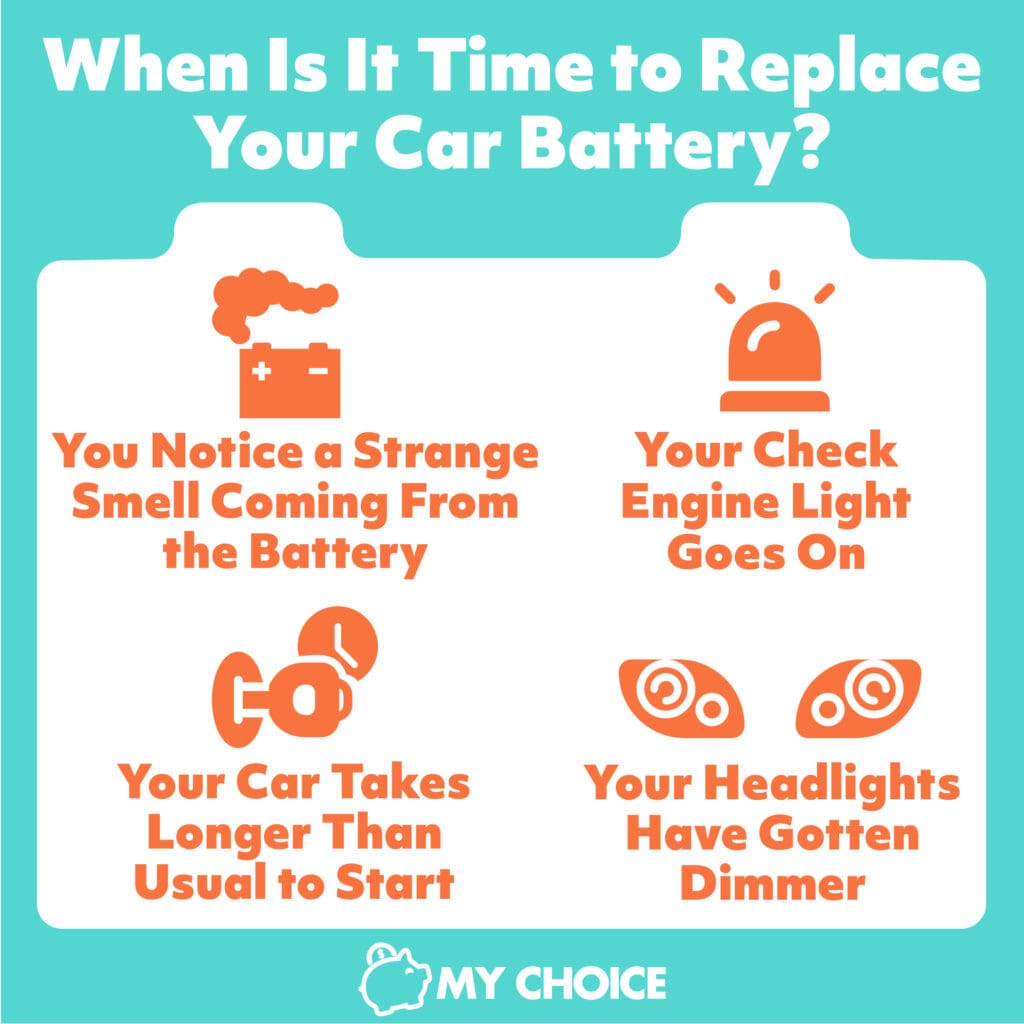
Winter can be a challenging time for drivers – think icy, slippery roads, reduced visibility, and the looming threat of your car battery conking out the moment temperatures dip below zero. But while you can’t control Mother Nature, you can do something about your battery.
Below, we shed some light on the most effective ways to prevent your car battery from dying in the winter, why cold weather affects batteries, and what signs to look out for when considering a replacement.
How to Prevent Your Car Battery From Dying in Cold Weather
Cold weather is just another part of life in Canada. Thankfully, there are things you can do to protect your car battery from it and save yourself hundreds of dollars each year.
Here are six tips for prolonging your battery’s life over winter:
Take Longer Trips
Winter driving is tough, so most people try to stay off the roads as much as they can. But cutting back on your driving time, whether unintentionally or not, can be bad for your car’s health.
Driving your car regularly – and taking longer trips – allows your alternator to recharge your battery, giving it enough power to restart even when the temperature drops significantly. Consider taking a road trip every now and then to keep your battery healthy. Just make sure to follow these highway driving tips and use winter tires to make driving on slippery roads safer.
Some people believe that letting their cars idle for several minutes will do the trick, but this can actually backfire on you. Idling or taking short trips can potentially shorten your battery’s lifespan instead of prolonging it, as the battery doesn’t get enough time to recharge fully.
A good rule of thumb is to take your car out for at least 10 km a couple of times each week.
Avoid Using Too Many Accessories at Once
Features like seat warmers, windshield wipers, radio, and fog lights all rely on your battery to work. When you have them on all at once, you can potentially keep your battery from charging to its full potential – or at all.
If possible, try not to use all your accessories at once to prevent overloading your battery. If, for example, you need your wipers, headlights, and defrosters on, maybe you can turn the radio off for a while.
Disconnect Your Battery or Use a Battery Blanket
Some people prefer to drive a beater car during winter to protect their main car from all the harsh elements the season brings. If you’re planning on doing this and storing your main car in a garage for several weeks, make sure to disconnect the battery and keep it in an area with more heat.
On the other hand, if you plan on using your car throughout the winter, you can keep your battery warm with a battery blanket or warmer. This is a heating pad that typically plugs into an outlet and keeps your battery at a consistent temperature.
Don’t Leave Your Car Outside
If you have a garage or access to underground parking, don’t pass up the chance to keep your car (and battery) safe and warm.
If you absolutely must park outside, make sure not to park on top of bare earth – this can expose your car to moisture and particles that could lead to corrosion.
Check Your Battery Terminals for Corrosion Regularly
Even if you do park your car indoors, corrosion can still happen. A damaged battery can cause acid to leak and corrode the surrounding areas. Too much buildup can create more resistance between connections, making it harder than it already is for the battery to start your engine. This is why it’s important to check your car battery terminals regularly.
Get Yourself a Battery Charger
A battery charger gets enough electricity into your car’s battery even if it’s been sitting in your garage for months. There are two types of battery chargers for cars: trickle and tender chargers:
- Trickle chargers provide a slow, continuous stream of electricity to your battery. These usually plug into an electrical outlet in your home.
- Tender chargers, also called maintainers, only charge your battery when it’s running low. These “smart” chargers also tell you when the battery is fully charged. For this reason, tender chargers are better at preventing overcharging. However, they tend to be more expensive than trickle chargers.
How Long Do Car Batteries Typically Last?
Most car batteries last about four years when used consistently.
All car batteries degrade over time, and some factors can shorten a car battery’s lifespan even further. This includes:
- The battery’s size
- Prolonged exposure to abnormally hot and cold weather
- Taking frequent short trips
- Exposure to moisture, corrosion
- Leaving the electrical accessories on when parked
- Frequent driving in heavy traffic
The Effects of Cold Weather on Batteries
Extreme temperatures can affect the longevity of car batteries. These are the reasons why car batteries tend to die out all of a sudden in the winter:
Reduced Capacity
When a car battery is exposed to freezing temperatures, its cranking power (or its ability to start an engine) is affected. This is because batteries operate through an electrochemical reaction that speeds up in higher temperatures and slows down in lower ones.
So, if you’ve noticed that your car takes a little longer to start when the temperature drops below freezing, this is why.
Slower Recharge Rate
Cold weather can slow your battery’s recharge rate or the rate at which the battery automatically recharges as you drive. Driving further in one trip helps charge your battery and ensures a better chance of restarting. But, in the winter, drivers are often less inclined (or able) to take their cars out due to dangerous conditions, which could slow the battery’s recharge rate.
Thickened Engine Oil
Another reason why batteries tend to fail during winter is that engine oil gets thicker when exposed to cold temperatures. When your engine oil becomes too viscous to flow smoothly, the battery has to work in overdrive to get the engine going.
More Demand for Power
Drivers tend to use more accessories in the winter, like windshield wipers, seat heaters, defrosters, and headlights. These all use up your car’s battery and reduce its capacity to recharge as you drive. Plus, even starting the engine requires more power in the cold.
Bear in mind that, although it may seem like car batteries are more prone to breakdowns in the winter, it is actually high temperatures that can do the most damage.
Extreme heat can cause batteries to shut down, as it speeds up the corrosion of the battery’s internal plates and causes electrolytes to vaporize more quickly. As winter comes after summer, all the stress put on a battery in the previous months can finally catch up to it once it’s exposed to cold temperatures.

When Is It Time to Replace Your Car Battery?
Knowing when it’s time to replace your car battery can be tricky. Take away some of the guesswork by checking for the following signs regularly:
Your Car Takes Longer Than Usual to Start
If your car takes a few seconds to start, it’s likely taking longer to receive a charge from the alternator. If it makes a clicking sound, that means it’s already long gone.
If your engine starts but dies moments later, that could also be a sign that your battery is starting to go.
Your Check Engine Light Goes On
Your check engine light is your engine computer’s way of warning you that something isn’t right. The most common problems that trigger your car’s onboard computer include:
- Oxygen sensor failure
- Spark plug or ignition coil problems
- A loose fuel cap
- A catalytic converter failure
- A vacuum leak
- Exhaust gas recirculation valve failure
The check engine light can also be indicative of a dead battery. Problems under the hood are often caused by an undercharged battery or a misconnected electrical unit – this can result in low voltage at the car’s central computer, triggering the check engine light.
Your Headlights Have Gotten Dimmer
Driving at night in the winter is already dangerous as it is. But when your headlights go dim, it may spell even more trouble for you — especially if you’re far from home.
Your headlights getting dimmer may be a sign that your battery is about to go. A failing battery can’t bring enough power to your vehicle’s electrical components, including your lights. Watch out for dimming or flickering interior lights as well, especially when you’re starting your car or allowing it to idle.
You Notice a Strange Smell Coming From the Battery
If you catch a whiff of something foul coming from under your hood, your battery might be to blame. Damaged batteries could leak sulfuric acid, which gives off an odour similar to rotten eggs. Also known as outgassing, leaking sulfuric acid can damage not only your battery but also corrode other important parts nearby as well.

Key Takeaways
Cold winter weather can wreak havoc on your car’s batteries, but there are plenty of ways to prepare your car for winter and prevent car batteries from conking out prematurely.
Make it a habit to check under the hood for signs of damage and corrosion; take longer, more frequent trips; and park your car indoors as much as you can. And if you notice fading power during start-ups or slower starts, take this as a sign that it’s time to replace your battery.
Don’t let a dead car battery make getting around in the winter even harder than it already is. With a few simple tips and tricks, you can protect your car battery from extreme weather and keep yourself from getting stranded in the cold.








